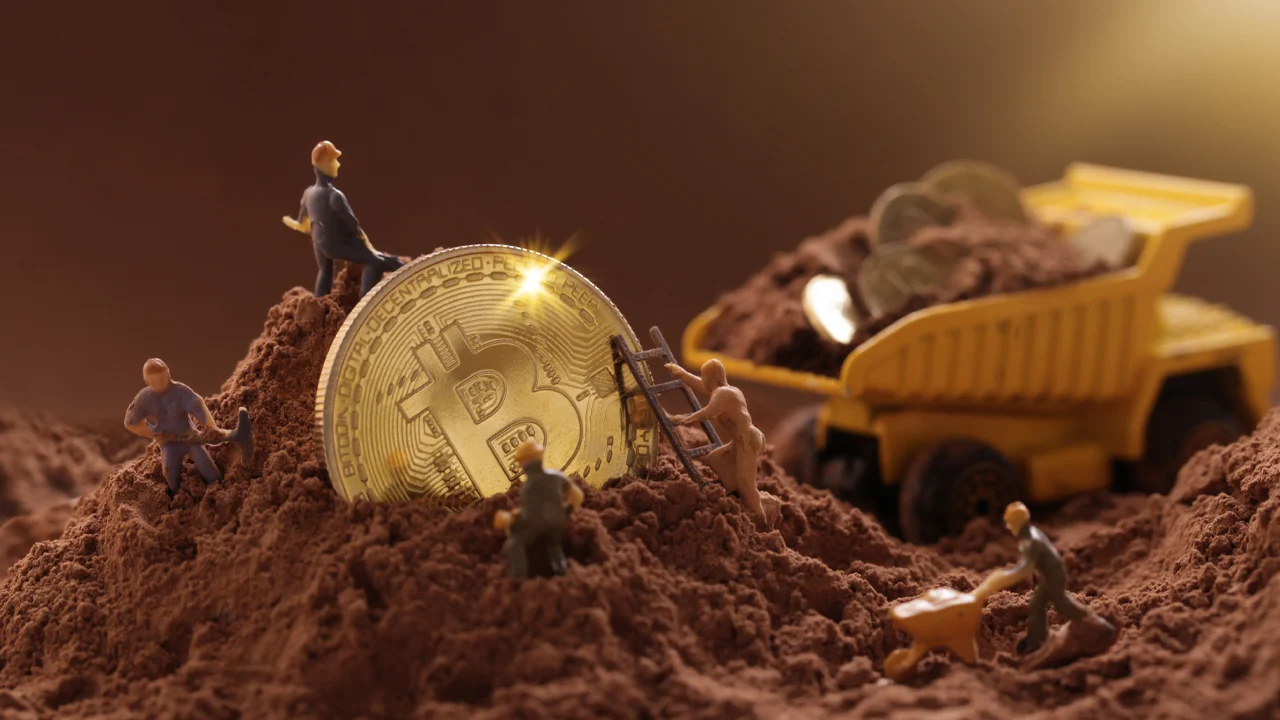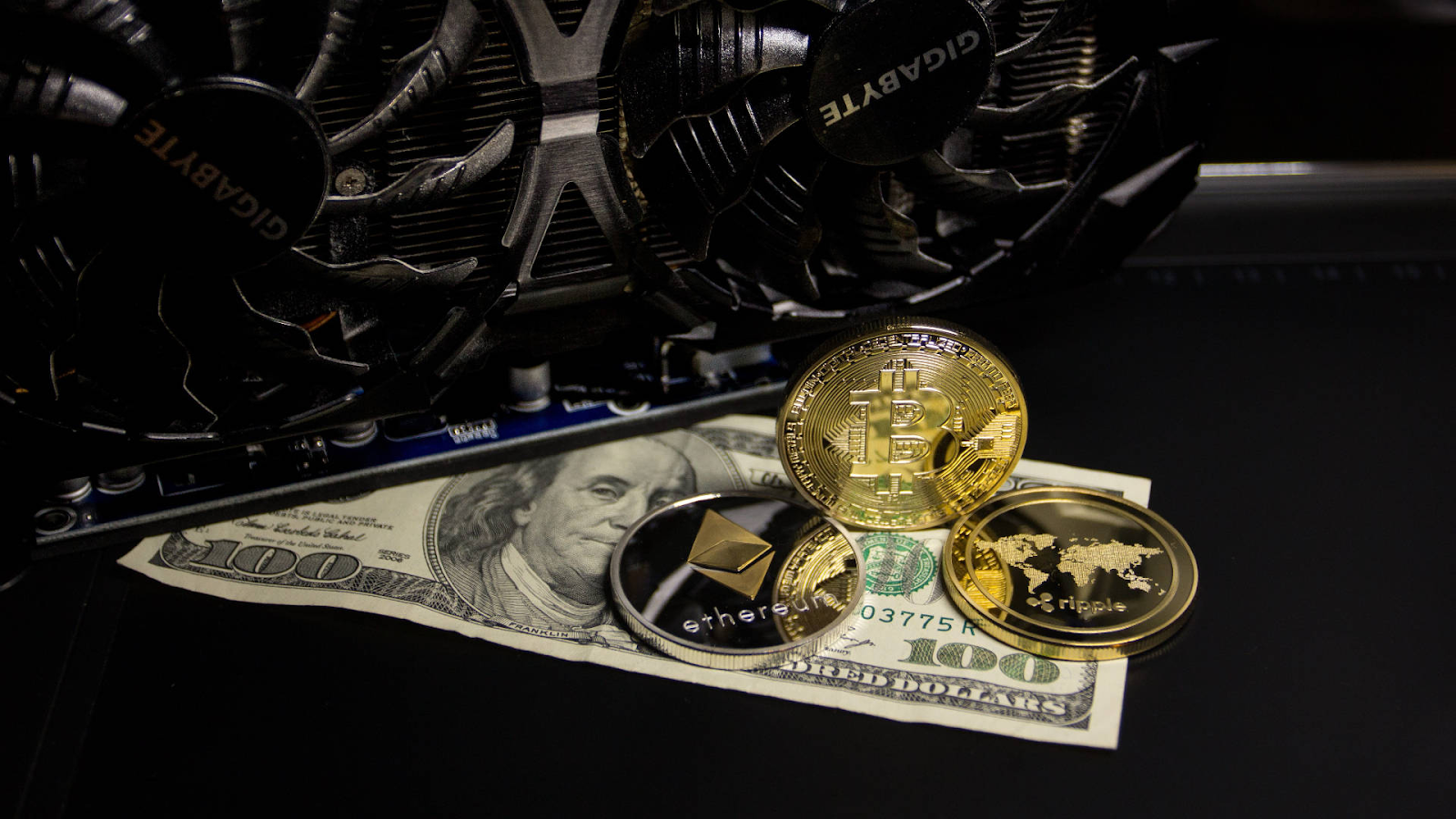Bitcoin Mining: The Art of Digitally Mining Gold
In today's digital age, cryptocurrencies are gaining popularity at an incredible rate. Among all the cryptocurrencies, Bitcoin has emerged as the most popular and valuable one. One of the reasons for its success is its unique mining process, which is also the backbone of the Bitcoin network. But what exactly is Bitcoin mining, and how does it work? Let's find out.
A. What is Bitcoin Mining ?
Mining Bitcoin is just like mining gold, but in a digital world. Instead of pickaxes and shovels, miners use powerful computers and specialized software to solve complex mathematical problems. The miners compete with each other to solve these problems, and the first one to solve it is rewarded with newly created Bitcoin.
I. Proof-of-Work
The process of mining Bitcoin is called proof-of-work, which requires a lot of computational power. The miners create blocks of transactions by solving complex mathematical problems using their computers. These blocks are then verified and added to the blockchain by other miners, creating a secure and decentralized ledger of all Bitcoin transactions.
II. Mining Equipment
Bitcoin mining is not an easy task, and it requires a lot of resources and energy. Miners need powerful computers and specialized hardware, such as ASICs, to mine Bitcoin efficiently. The energy consumption of Bitcoin mining is also a concern, as it requires a lot of electricity to power these computers.
III. Earn from Mining
However, mining Bitcoin is also a lucrative business. Miners are rewarded with Bitcoin for their efforts, which they can either hold or sell on the market. The mining rewards are halved every four years, making Bitcoin a deflationary currency that becomes scarcer over time.
B. Risks and Challenges:
Bitcoin mining is not without its risks and challenges. The first challenge is the volatility of Bitcoin prices, which can have a significant impact on mining profitability. The price of Bitcoin can fluctuate greatly, which can result in mining becoming either highly profitable or unprofitable.
Another challenge is the increasing difficulty of mining. The more miners there are, the more difficult it becomes to mine Bitcoin. This is because the Bitcoin network is designed to adjust the difficulty of mining every 2016 blocks to ensure that it takes approximately 10 minutes to mine a block.
In addition to the challenges of mining itself, there are also risks associated with storing and securing Bitcoin. As a digital asset, Bitcoin is vulnerable to hacking and theft. Miners need to ensure that they are storing their Bitcoin securely in wallets that are protected by strong passwords and other security measures.
C. Environmental Concerns:
The energy consumption of Bitcoin mining has been a growing concern in recent years. The energy required to mine Bitcoin is significant, and much of it comes from non-renewable sources such as coal and natural gas. This has led to criticism of Bitcoin mining for its environmental impact.
However, it's important to note that not all Bitcoin mining is done using non-renewable energy sources. Some miners are using renewable energy sources such as hydroelectricity and solar power to mine Bitcoin. In fact, some mining companies are even setting up operations near renewable energy sources to take advantage of the low-cost energy they provide.
D. Future of Bitcoin Mining:
As Bitcoin becomes more mainstream, the future of Bitcoin mining is likely to change. It's possible that mining will become more centralized, with large mining companies dominating the market. Alternatively, mining may become more decentralized as new technologies and methods for mining are developed.
One thing is certain, however. Bitcoin mining will continue to be an important part of the Bitcoin network, and it will play a crucial role in maintaining the security and integrity of the blockchain.
Conclusion:
Bitcoin mining is a complex and fascinating process that has created a new industry and opportunities for people around the world. Although it has its risks and challenges, Bitcoin mining has revolutionized the way we think about money and transactions. With the growing concern about environmental impact, the future of Bitcoin mining is likely to be shaped by the development of new technologies and methods that are more sustainable and efficient.
By Vishal Solomon







Comments
Post a Comment